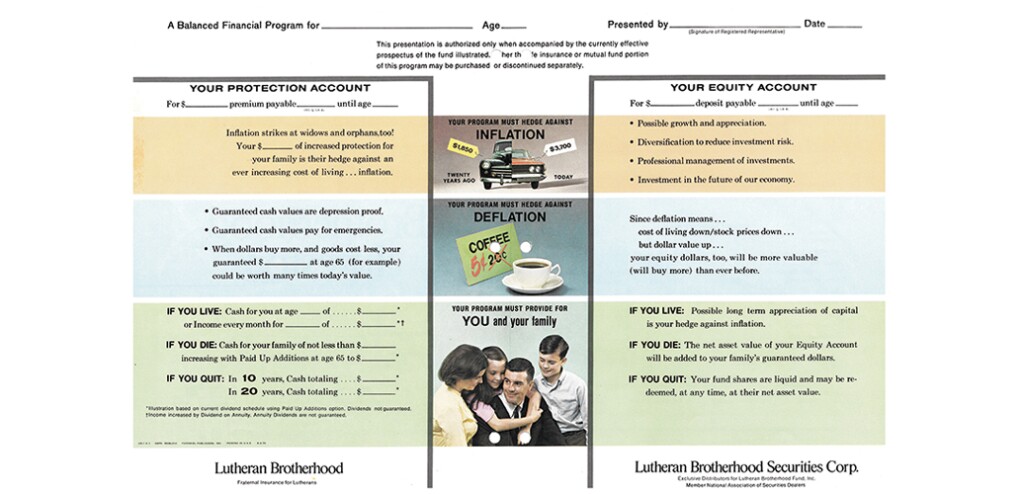Investing is a powerful way to grow the wealth you've worked hard to build and move closer to your financial goals, like a secure retirement. But if choosing individual stocks or funds feels overwhelming, index funds might be a smart, straightforward solution.
Curious about what index funds are and how they work? Let’s dive in and explore how they can fit into your investment strategy.
What is an index fund?
An index fund aims to track the returns of a certain market index, such as the S&P 500 Index. Index funds can be a form of
Typically, index funds invest in the securities—stocks or bonds—of companies that make up the index the fund aims to mimic. However, some index funds also use derivatives, such as options or futures. Although some index funds invest in every company included in an index, others may only invest in a select sample of the companies.
Index funds are most commonly made up of a variety of securities. How much weight each security has in the index can vary: To determine the weight of a security, index funds typically rely on a company's
What is the main appeal of index funds?
Index funds tend to follow a
The goal isn't to outperform a market index but to match the same return. This investment philosophy could hold appeal if you aren't looking to spend a ton of time researching securities, following the market and making frequent trades. If you prefer to earn more of a passive income or are new to investing, index funds can offer a comparatively simple path forward. They essentially make it possible for any investor, whether novice or expert, to take advantage of the historical long-term growth that the stock market experiences.
Every investment comes with some form of risk, but index funds can help spread out that risk by investing money in multiple securities. If one of those securities takes a dip, your eggs aren't in one basket only, and another part of the index fund may grow in value to cancel out the losses.
Because they aren't actively managed, index funds are also a relatively affordable investment option. You won't need to worry about actively choosing securities to invest in on an ongoing basis, which can save you from leaning on the professional help of research analysts and fund managers. This doesn't necessarily mean that index funds always have lower costs than actively managed funds—but in many scenarios, they can be a more affordable investment option.
Pros & cons of index funds
Not sure if index funds are the right way for you to reach your investment goals? Examining the pros and cons can help you build confidence and feel more secure in your decision.
Pros of index funds
- Fewer fees. Because index funds are passively managed, you don't usually need a fund manager to do trades as often as you would if you invested in actively managed funds. This can lower management fees.
- Diversified. One way to mitigate risk when investing is to
diversify your investments . Many index funds are diversified, but double-check before you invest—some index funds may only invest in a certain type of company or industry.
- More stable returns. Index funds may offer more predictable returns over longer time periods compared with actively managed funds, since they are diversified and aim to follow the stock market's history of long-term growth.
- Passive. Looking to save time on research? With an index fund, you don't have to choose the securities you want to invest in; instead, the investments held in an index fund follow a benchmark index.
- Tax efficiency. Index funds generally have lower turnover among the securities in the fund than actively managed funds, meaning many index funds generate less
capital gain distributions .
Cons of index funds
- Inflexible. Since you don't choose the securities in an index fund, you lack the ability to react to any price declines the securities experience.
- Errors can occur. An index fund may not accurately track its index 100% of the time. Index funds may invest in just a sampling of securities held in a market index, which can result in the index fund's performance not matching the index perfectly.
- Underperformance. Because an index fund can underperform its index due to tracking errors, the cost of fees, expenses and trading can hurt your ability to profit from the index fund.
What to know about investing in index funds
Investing in an index fund can be a simpler way to invest with less risk. This can be ideal for certain types of investors, including novice investors who want to grow their savings but don't feel ready to actively manage investments.
That said, investments and mutual funds do carry some risk. That's why it's important to read the fund's available information—such as recent shareholder reports and the fund's prospectus—before investing in it. You usually can find this information on the fund's website, or you can work with a financial advisor to walk you through the relevant data. Make sure you're also aware of any fees associated with buying, owning and selling the fund.
Life is busy enough as it is. One of the main appeals of index funds is how passive they are—as a result, you can skip much of the research, management and administration work involved. With that in mind, it's important to note that it can still be helpful to work with a financial advisor as you choose the right investments to meet your financial goals. If you opt to include index funds as a part of your retirement savings strategy, getting professional support can help you make more informed decisions and keep you on track to meet your goals.
Connect with a







